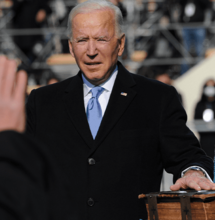Colorado Farmers Eager to Legally Grow Hemp

Legislation structuring the legal growing of hemp in Colorado could launch new industry
Legislation structuring the legal growing of hemp in Colorado could launch new industry
SOURCE: 'The Greeley Tribune'
AUTHOR: Eric Brown
LOVELAND -- Mark Daly drove from Wyoming to Loveland and back Thursday with hopes of resurrecting a business he lost about 12 years ago.
Like Daly, many of the 120 others at the Industrial Hemp Workshop were optimistic and enthusiastic -- eager to bring back to U.S. farms a crop that has thousands of uses, they said, requires limited irrigation, has rapidly growing markets, but has "mistakenly" been lumped into marijuana talks and outlawed by the federal government since the 1950s.
Thursday's workshop brought together entrepreneurs, lawmakers and crops growers -- some in their 60s, clad in overalls and baseball caps, and others in their 20s, wearing hooded sweatshirts and trendy, think-framed glasses -- to discuss hemp's past, present and future.
Perhaps the event, sponsored by the Rocky Mountain Farmers Union, is the start of a new chapter for U.S. ag -- a general cheer that came from many in attendance, including by Sen. Gail Schwartz, D-Snowmass, who's leading efforts to draft legislation that would structure how Colorado farmers could grow hemp.
Schwartz said she hopes to introduce her bill next week.
Last year's passage of Amendment 64 in Colorado legalized the possession and cultivation of marijuana and hemp, but growing hemp, and marijuana, is still illegal under federal law.
Schwartz said she wants to start small with industrial hemp growing -- not drawing the attention from the federal government.
If Colorado can push such a bill through during this legislative session, it could be the first state to grow industrial hemp since it was made illegal in the U.S. in 1957.
And such legislation could one day help get Daly back in business.
About 15 years ago, Daly, a Cheyenne resident, was making non-tobacco chew out of hemp -- hemp imported from a supplier based in Canada, where the crop has been grown legally since the late 1990s.
Daly, a life-long tobacco chewer, said his hemp-chew substitute helped him and his customers kick tobacco, and -- because of hemp's Omega 3 and Omega 6 acids -- also healed his lips and gums after decades of chewing.
The side business was a good one, and he wanted to make it a full-time career, but, after 9/11, the U.S. tightened its restrictions on hemp imports, Daly said, to the point that his Canadian supplier got out of hemp exporting.
Since then, Daly, now a lumber trader, hasn't been able to find the hemp "herds" -- portions of hemp stalks -- he needs to get the business up and going again.
But he hasn't given up after more than a decade.
"If we can make this happen, I'll have what I need, and could have someone locally to do business with," Daly said of legalizing the growing of hemp -- which is genetically a "cousin" to marijuana, but contains little or none of the psychoactive substance, THC.
During Thursday's workshop, which was held in a conference room at The Ranch, enthusiasts highlighted hemp oil's and hemp protein's unique health benefits.
Hemp today is used in food, nutrition supplements and animal feeds, and also fiber glass, fabrics, paper, soaps, cosmetics, paints, coatings and its byproduct could be used eventually in biofuels, as hemp proponents explained at the workshop.
With its many uses, the hemp industry overall is expected to see a 50 percent increase in growth during just the next 12-18 months, according to Shaun Crew, president of Canada Hemp Oil, which is Canada's largest hemp-seed processor.
And growing hemp can be profitable for farmers, said Andrea Hermann, a hemp agronomist and president of the Hemp Industries Association in Canada.
In her presentation, Hermann referred to a study that showed hemp-growers -- based on yields of about 700 pounds per acre -- profited an average of $255 per acre on Canada's prairie lands, with corn and wheat growers bringing in $208 and $100 per acre in profits, respectively.
Some farmers afterward noted, though, that differing factors in the U.S. could limit such profits in hemp growing.
As far as Leonard Roskop is concerned, hemp-growing in the U.S. is a "no-brainer."
The longtime Weld County farmer of corn and other crops said in previous years he's spent time in Denver discussing the legalization of growing hemp.
He said he likes the health benefits of hemp oils, among the many other uses for the plant, and also noted the fact that it requires less water than others crops.
"Considering our water situation here, we need to look at changing what we grow," added Roskop, who said last year he was only able to grow about half the crops he normally does, because of drought and limited water.
Whether certain farmers see hemp fitting into their rotations, Schwartz wants to give crop growers the choice.
With oversight from the Colorado Department of Agriculture, Schwartz's bill, she said, would call for hemp growers to start on 10-acre research-and-development plots, and have plants tested to make sure they contain less than .03 percent THC.
Hemp growers would have to register with the ag department -- not required for any other crop in Colorado, according to Ron Carleton, Colorado's deputy agriculture commissioner.
"We still have a ways to go before we know exactly how this all plays out," Carleton said. "I really don't know enough about it yet to understand all of the benefits, or any potential drawbacks.
"It seems, though, that there's a fair amount of people interested in this."
Hemp's history in the U.S.
1700s -- American farmers are required by law to grow hemp in Virginia and other colonies.
1776 -- The Declaration of Independence is drafted on hemp paper.
1890-1940s -- USDA Chief Botanist Lyster Dewey grows five varieties of hemp at Arlington Farms in Virginia, the current site of the Pentagon.
1916 -- USDA Bulletin No. 404 shows that hemp produces four times more paper per acre than do trees.
1938 -- Popular Mechanics article "New Billion Dollar Crop" explains that new developments in processing technology could use hemp to manufacture over 25,000 different products, "from cellophane to dynamite."
1942 -- Henry Ford builds an experimental car body made with hemp fiber, which is 10 times stronger than steel.
1942-1946 -- American farmers harvest more than 150,000 acres of hemp through the USDA's Hemp for Victory program.
1957 -- Hemp is last grown in the U.S., due to the government including hemp with drug varieties of the plant.
1998 -- The U.S. begins to import food-grade hemp seed and oil.
2005 -- A bill is introduced in the U.S. Congress for the first time to allow states to regulate hemp farming, but to date no committee hearing or floor vote has taken place.
2011 -- Rep. Ron Paul, R-Tex., introduces H.R. 1831, The Industrial Hemp Farming Act, in the House of Representatives.
2012 -- Sen. Ron Wyden, D-Ore., introduces S. 3501, the Senate companion bill to H.R. 1831.
Source: hemphistoryweek.com
(c)2013 the Greeley Tribune (Greeley, Colo.)
Visit the Greeley Tribune (Greeley, Colo.) at www.greeleytribune.com
Distributed by MCT Information Services



